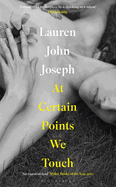
| Publisher: | Bloomsbury | |
| Genre: | LGBTQ+ - Transgender, Romance, Transgender, Fiction, Gay, LGBTQ+ | |
| ISBN: | 9781526631305 | |
| Pub Date: | December 2022 | |
| Price: | $26 |
| Fiction |
by Lauren John Joseph
Lauren John Joseph is extraordinarily talented on many fronts. At Certain Points We Touch distills those talents into a queer, autofictional love story both haunting and hilarious, and crystallizes Joseph as a literary artist of the highest caliber.
The exceedingly eloquent narrator, JJ, was born to be a storyteller, but whether that dream is waylaid or fostered by their impulsivity is anyone's guess. JJ bounces from London to San Francisco, to New York City, to Mexico City; couch-surfing in friends' apartments and wig-swapping their way through gay nightclubs and art galleries. If there is one constant in JJ's eclectic adulthood, it is Thomas James, "a disco Lothario," a sulky bad boy, the man who forever captured JJ's heart, but died an untimely death.
At Certain Points We Touch ruminates on themes of love, loss and queerness with such a mature sense of craft that one can almost hear the scratch of a calligrapher's stylus as they painstakingly etch this elegy to a dead lover. Lauren John Joseph has produced a masterpiece. --Dave Wheeler, associate editor, Shelf Awareness
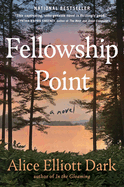
| Publisher: | Marysue Rucci Books/Scribner | |
| Genre: | Women, Friendship, Sagas, Fiction | |
| ISBN: | 9781982131814 | |
| Pub Date: | July 2022 | |
| Price: | $28.99 |
| Fiction |
by Alice Elliott Dark
A grand literary novel destined to dazzle readers with an intriguing combination of social drama, satiric wit and moral gravity, Fellowship Point by Alice Elliott Dark focuses on two East Coast dowagers navigating the contours of their eight-decades-long friendship and their roles as stewards of a beloved wildlife sanctuary on the coast of Maine. The 145-acre stretch of unspoiled land includes a salt marsh teeming with eagles and ducks, wild meadows of native plants, forests and a rocky beach. Known as Fellowship Point, or simply the Point, the property serves as the majestic backdrop of Dark's (Think of England) second novel.
In the delightful tradition of writers such as Edith Wharton and E.M. Forster, Fellowship Point revels in overlapping subplots and a cast of superbly drawn, memorable characters wrestling with delicate questions of the heart as well as social issues of property rights and class divisions. As the Point's future is settled, it is clear that Dark's octogenarian heroines will have a significant and lasting impact on the lives of all who come after them. --Shahina Piyarali
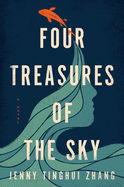
| Publisher: | Flatiron Books | |
| Genre: | General, Literary, Asian American, Fiction, Historical | |
| ISBN: | 9781250811783 | |
| Pub Date: | April 2022 | |
| Price: | $27.99 |
| Fiction |
by Jenny Tinghui Zhang
Jenny Tinghui Zhang's breathtaking debut novel, Four Treasures of the Sky, opens like a traditional hero's journey but reads more like poetry, subtle but effective, taut without sacrificing immersion. This continent-hopping coming-of-age story set in the late 1800s follows young Daiyu as she traverses land and sea, from a fishing village in China to a San Francisco brothel to Idaho, a land without an ocean, bearing with her a hope in the face of crushing tragedy and anti-Chinese sentiment.
The result is a story that combines the tragic with the beatific, the historic with the folkloric. Zhang blurs these lines with such grace that the book reads easily, in spite of its heavy material. But it is the final few paragraphs that will stick between the ribs of any devoted reader. Zhang has accomplished a remarkable work of fiction that feels so real it stings, drawing numerous accolades, including a spot as a Good Morning America Book Club Buzz Pick. --Lauren Puckett
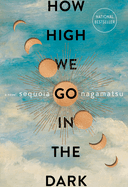
| Publisher: | Morrow | |
| Genre: | Space Exploration, Literary, Apocalyptic & Post-Apocalyptic, Fiction, Science Fiction | |
| ISBN: | 9780063072640 | |
| Pub Date: | January 2022 | |
| Price: | $27.99 |
| Fiction |
by Sequoia Nagamatsu
Sequoia Nagamatsu (Where We Go When All We Were Is Gone) boldly imagines the human cost and cultural revisions brought about by a deadly plague in How High We Go in the Dark, an intimate, inventive sci-fi novel-in-stories.
In the opening story, "30,000 Years Beneath a Eulogy," a grieving father arrives in Siberia to finish environmental research started by his daughter, whose fatal fall into a hidden cavern led her coworkers to discover the 30,000-year-old corpse of a girl whose genes look like a cross between Neanderthal, human and something like a starfish. The body also carries an ancient virus that causes organ failure, and when this "Arctic plague" escapes into the general population, it changes the face of human society.
Though some scenes feel reminiscent of recent history, Nagamatsu wrote much of the material prior to the Covid-19 pandemic. Shortlisted for the Ursula K. Le Guin Prize for Fiction, this beautiful collection of sorrows and foretellings should appeal to both literary fiction and sci-fi readers. --Jaclyn Fulwood, blogger at Infinite Reads
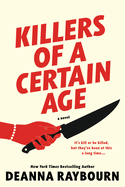
| Publisher: | Berkley | |
| Genre: | Women, Suspense, Thrillers, Fiction | |
| ISBN: | 9780593200681 | |
| Pub Date: | September 2022 | |
| Price: | $27 |
| Fiction |
by Deanna Raybourn
In Deanna Raybourn's rousing, jet-paced thriller Killers of a Certain Age, four female assassins have spent 40 years assassinating people whose termination their employer deemed necessary to make the world a better place. Now the four killers, in their 60s, are set to retire.
The occasion is marked by an all-expenses-paid cruise to the West Indies. While enjoying Bloody Marys and mimosas on the ship, one of the women spots a junior field operative who has only one reason to be there: he's on a job. And his mark(s): one or all four of his former colleagues. What follows is an explosive chase as the retirees try to survive going up against the very organization that created them, and younger killers whose knees don't pop from exertion.
It's clear how much Raybourn enjoys writing about the adventures of these formidable women. And if they were underestimated when they were younger, they've become even more invisible as older women, something they use to their advantage to stay alive. Infused with humor, high-flying action, sharp dialogue and engaging characters, Killers of a Certain Age is a delight for readers of any age. --Elyse Dinh-McCrillis
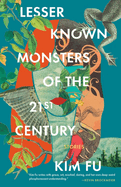
| Publisher: | Tin House | |
| Genre: | Short Stories (single author), Dystopian, Magical Realism, Fantasy, Contemporary, Literary, Fiction | |
| ISBN: | 9781951142995 | |
| Pub Date: | February 2022 | |
| Price: | $16.95 |
| Fiction |
by Kim Fu
Kim Fu (The Lost Girls of Camp Forevermore) sheds an uncanny light on the emotional dissonance of modern life in Lesser Known Monsters of the 21st Century, her strange and fantastic first collection of short stories.
In "Pre-Simulation Consultation XF007867," the operator of a service that renders lifelike simulations based on a customer's input warns a prospective client that indulging in certain fantasies could lead to dangerous consequences. This concise opening story serves handily as a thematic overture for what follows: the unsettled (and often unsettling) boundary between reality and fantasy is a perpetual fascination of Fu across these 12 stories, as are the dark and strange expressions that desire finds through technology and art. Longlisted for the Giller Prize, Fu embraces the sorts of high-concept premises native to the weird fringes of science fiction and horror, deftly magnifying the strangeness of everyday anxieties. --Theo Henderson, bookseller at Ravenna Third Place Books in Seattle, Wash.
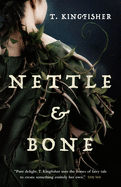
| Publisher: | Tor Books | |
| Genre: | Fairy Tales, Folk Tales, Legends & Mythology, Fantasy, Fiction, Action & Adventure | |
| ISBN: | 9781250244048 | |
| Pub Date: | April 2022 | |
| Price: | $25.99 |
| Fiction |
by T. Kingfisher
Fantasy novelist and cult favorite T. Kingfisher (The Hollow Places; The Twisted Ones) pits an underdog princess and a quirky party of adventurers against an evil prince and powerful enchantments in the clever and bold-hearted fairy tale Nettle & Bone.
For Princess Marra's eldest sister, Damia, marriage to a prince ends in her death. Marra's middle sister, Kania, marries the prince next so as to appease the larger kingdom, while Marra leads a contented life of service in a convent. She learns that the prince had murdered Damia and now abuses Kania. Against all odds, Marra sets out on a quest to kill the prince before he destroys Kania and makes Marra his next victim.
Marra's hard-fought journey from third-string princess to hero will delight fantasy readers. Kingfisher's signature offbeat humor remains as entertaining as ever, and her treatment of domestic abuse is filled with compassion and dignity. This rollicking feminist fairy tale is filled with redemption, community and courage, its dark passages the road to a satisfyingly uplifting endgame. --Jaclyn Fulwood, blogger at Infinite Reads
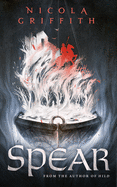
| Publisher: | Tordotcom | |
| Genre: | Arthurian, Fairy Tales, Folk Tales, Legends & Mythology, Fantasy, Lesbian, Fiction, LGBTQ+ | |
| ISBN: | 9781250819321 | |
| Pub Date: | April 2022 | |
| Price: | $19.99 |
| Fiction |
by Nicola Griffith
Nicola Griffith (Hild) draws on legend, myth and history in Spear, an Arthurian-inspired novella centered on tales of Peretur, one of the legendary Knights of the Round Table. Peretur was once a girl with no name, loved by her mother and hidden in a protected cave in the woods. But gradually, the "urge to roam increased upon her like thirst" until it came time for her to leave her home and explore the world, no longer protected by her mother's wards or the cover of secrecy. In the wilds of the world, Peretur takes refuge in the guise of a man and is soon drawn into the circle of Arturus's court.
Griffith deftly weaves tales of the Tuath Dé and their coveted objects of power with legends of Camelot and Arthur's court. What emerges from these threads is a lush and lyrical story, steeped in the historical details of sixth-century Wales and the unreliable, if plentiful, Arthurian legends. In Griffith's capable hands, this fuel fires a beautiful, atmospheric novella, a queer retelling of an age-old myth that is a wonder to behold. --Kerry McHugh, freelance writer
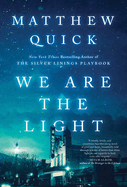
| Publisher: | Avid Reader Press | |
| Genre: | Friendship, Small Town & Rural, Literary, Fiction | |
| ISBN: | 9781668005422 | |
| Pub Date: | November 2022 | |
| Price: | $27.99 |
| Fiction |
by Matthew Quick
A high school counselor suffering the aftereffects of severe trauma decides to mentor a troubled teen boy in We Are the Light, an alternately dark, tender and funny novel from Matthew Quick (The Reason You're Alive)--his first book in five years. The healing power of art, grief's reality-shattering weight and the resilience of community come together in a series of achingly honest, unanswered letters from a man trying to make sense of a world that has tilted on its axis.
Although a mass shooting incident underlies the circumstances of the story, Quick never leans into sensationalism but instead focuses on the devastating ripple effect of trauma experienced by the town. Unexpectedly funny moments lift the somber subject matter. Filled with everyday guardian angels, this bittersweet, redemptive meditation on rebuilding after the unthinkable reminds readers that beauty can be found even among shattered pieces. We Are the Light is a perfect read for anyone in need of an insightful, optimistic view of humanity's capacity for compassion and growth. --Jaclyn Fulwood
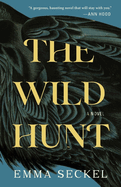
| Publisher: | Tin House | |
| Genre: | World Literature, Scotland - 20th Century, Family Life, Fantasy, General, Literary, Fiction, Historical, World War II | |
| ISBN: | 9781953534224 | |
| Pub Date: | August 2022 | |
| Price: | $16.95 |
| Fiction |
by Emma Seckel
"On the first of October they arrived." Leigh Welles has just returned home to the small Scottish island of her birth for her father's funeral, and the crows have returned as they do each October, but she finds nearly everything else changed since the war. So begins Emma Seckel's first novel, The Wild Hunt, an atmospheric story of place, family, home and belonging.
The Wild Hunt is part ghost story, part elegy to war and traditional lifestyles, dreamlike even in its horrors. Seckel weaves historical fiction with mystery and fantastic elements and threads of romance in this tale of love, grief, attachment to place and resistance to change. Her island setting is both otherworldly and firmly rooted, and her prose style is lushly evocative. This imaginative novel is memorable and wild indeed. --Julia Kastner, librarian and blogger at pagesofjulia
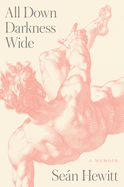
| Publisher: | Penguin Press | |
| Genre: | Biography & Autobiography, Family & Relationships, Love & Romance, Personal Memoirs, LGBTQ+ | |
| ISBN: | 9780593300084 | |
| Pub Date: | July 2022 | |
| Price: | $26 |
| Nonfiction |
by Seán Hewitt
In his searching memoir, All Down Darkness Wide, Trinity College Dublin academic Seán Hewitt (J.M. Synge: Nature, Politics, Modernism) makes his fraught relationship with a Swedish man named Elias a lens for examining how mental health issues affect queer poets coming to terms with their sexuality. The book's unforgettable opening is set in the Liverpool graveyard where Hewitt had assignations with anonymous men: "Meeting men at night, all those years, I let the ghost inside me out." His secret self, suppressed in the closet during his teenage years, flies out to meet other ghosts: his college boyfriend, Jack; the gay men lost to AIDS; and the English poet and priest Gerard Manley Hopkins, from whose work Hewitt took inspiration and the memoir's title phrase. Chief among the memoir's spectral presences is Elias, Hewitt's former partner.
Blending biography and history with raw personal experience, All Down Darkness Wide--winner of the 2022 Rooney Prize for Irish Literature--is as lyrically written as any book of poetry and advocates for self-expression as a route out of sadness. --Rebecca Foster, freelance reviewer, proofreader and blogger at Bookish Beck
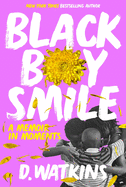
| Publisher: | Legacy Lit | |
| Genre: | Biography & Autobiography, Inspiration & Personal Growth, Men's Studies, Body, Mind & Spirit, Literary Collections, Cultural, Ethnic & Regional, African American & Black, Social Science, Essays | |
| ISBN: | 9780306924002 | |
| Pub Date: | May 2022 | |
| Price: | $27 |
| Nonfiction |
by D. Watkins
In Black Boy Smile: A Memoir in Moments, D. Watkins moves into new, vulnerable territory. Here Watkins (The Cook Up and The Beast Side) dissects what he calls "the lie": codes of Black masculinity that forced him into stoic silence in order to survive his upbringing.
In this book, Watkins practices the opposite--he shares traumatic memories of sexual abuse and violence as well as ways in which "the lie" inhibited his growth and happiness. Through it all, his love for the people of east Baltimore shines through, and Watkins's story feels radical in its openness and in its vision of a Black manhood that does not require bottling up feelings of pain or joy. His colorful prose delivers humor and attitude at every turn, particularly in the vivid descriptions. The first hint of a brighter future for Watkins came through books. Writing became something he pursued with a single-minded determination. Black Boy Smile, winner of the 2022 Paris Book Award for General Nonfiction, is a powerfully redemptive work because Watkins finds more than a career; he finds a new way of being, and his determination to pass on the lessons he's learned ensures that the book ends on a profoundly hopeful note. --Hank Stephenson
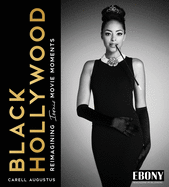
| Publisher: | Ebony Magazine Publishing/Sourcebooks | |
| Genre: | Photography, Art, Celebrity, Subjects & Themes, Film & Video | |
| ISBN: | 9781728258393 | |
| Pub Date: | October 2022 | |
| Price: | $39.99 |
| Nonfiction |
by Carell Augustus
For the brilliantly conceived Black Hollywood: Reimagining Iconic Movie Moments, photographer Carell Augustus recasts familiar shots from classic films and others--as well as career-defining stills of Tinseltown greats--with Black leads. It is a knockout portrait showcase.
For his subjects, Augustus taps more than 60 figures in the world of arts and entertainment. Vivica A. Fox impersonates Old Hollywood's screen siren Veronica Lake. Blair Underwood relives Jack Nicholson's "Here's Johnny!" moment from The Shining. Vanessa L. Williams poses as Cleopatra and is as ravishingly sultry as Elizabeth Taylor ever was. Augustus's book comes from a personal place. A child of the 1980s, he loved movies like The Goonies and Back to the Future. Only later did he "fully understand the implications of dreaming vicariously through those who looked nothing like me," he writes in his introduction. Black Hollywood can be evaluated and enjoyed strictly for its visual dazzle: the photos are stunning and, while remarkably faithful to the source material, spiked with playful departures. But no image in the book has more layers of meaning than Augustus's shot of the dreadlocked Shanola Hampton as Scarlett O'Hara in Gone with the Wind, her fist raised in defiance. --Nell Beram, author and freelance writer
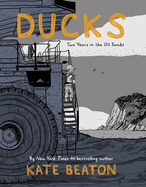
| Publisher: | Drawn & Quarterly | |
| Genre: | Biography & Autobiography, Biography & Memoir, Nonfiction, General, Literary, Comics & Graphic Novels | |
| ISBN: | 9781770462892 | |
| Pub Date: | September 2022 | |
| Price: | $39.95 |
| Nonfiction |
by Kate Beaton
In Ducks: Two Years in the Oil Sands, Kate Beaton (Hark! A Vagrant) draws on her experiences working in the oil fields of Alberta, Canada to create an impassioned, astonishing memoir.
In 2005, Beaton was 21, a university graduate with an arts degree. Beloved, beautiful Cape Breton, Nova Scotia, is home but lacks employment opportunities. Beaton, to pay off "debilitating student debt," follows the work west into harsh, isolating territory. She moves from site to site--each seemingly more remote. Plenty of her coworkers share geographical origins (East Coast) and economic goals ("the good money, the better life"). Her revelations about people, relationships and her own self prove both wrenching and reassuring.
In immersive black, white, gray and blue-tinted panels, Beaton bears powerful witness to desperate adversity and redeeming goodness with sharp candor and unexpected humor. Her panels are strikingly emotive: furrowed eyebrows demanding attention, an undecorated artificial Christmas tree on its side, clenched fingers during a difficult conversation. Beaton regularly inserts zoomed-out landscapes underscoring the devastating cost of such lucrative opportunities beyond the human toll. A mesmerizing story that readers will want to devour in a single sitting. --Terry Hong, Smithsonian BookDragon
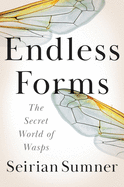
| Publisher: | Harper | |
| Genre: | Nature, Life Sciences, Animals, Insects & Spiders, Zoology - Entomology, Science, Ecology | |
| ISBN: | 9780063029927 | |
| Pub Date: | July 2022 | |
| Price: | $28.99 |
| Nonfiction |
by Seirian Sumner
In Endless Forms: The Secret World of Wasps, the celebrated British entomologist and modern-day wasp whisperer Seirian Sumner invites readers on a revelatory as well as highly entertaining journey to discover the beauty, vast diversity and critical functions of the "most enigmatic of insects." Throughout history, wasps have been misunderstood and compared unfavorably to their cuter cousins, bees. Sumner's debut sets out to rehabilitate these ancient insects to their rightful place as admired and valuable members of the insect kingdom.
Sumner has spent more than two decades studying wasps across the globe. Blending scientific knowledge and passion for her subject with a captivating storytelling style, the author highlights the significance of wasps as the ancestral forebears of bees and ants, shares her enchantment with their complex social lives and builds a compelling case for their ecological importance as nature's essential pest controllers and pollinators. Even the wasp's dreaded sting offers promising value to medical researchers who are experimenting with wasp venom as a possible cancer treatment tool. Endless Forms is a labor of love, designed to alter fundamentally the narrative surrounding wasps. --Shahina Piyarali, reviewer
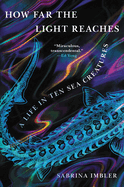
| Publisher: | Little, Brown | |
| Genre: | Life Sciences, Marine Biology, Biography & Autobiography, Science, Essays, LGBTQ+ | |
| ISBN: | 9780316540537 | |
| Pub Date: | December 2022 | |
| Price: | $27 |
| Nonfiction |
by Sabrina Imbler
In the opening pages of the stunning and thoughtful debut essay collection How Far the Light Reaches: A Life in Ten Sea Creatures, science journalist Sabrina Imbler recalls the first time they wrote about an octopus and how it made them think of their mother: "I discovered unexpected, surprising resonances that cracked open what I knew about the ocean and myself." Imbler continues to weave together the oceanic and the human in thought-provoking reflections on queerness, race, family, love and identity along the way.
In "How to Draw a Sperm Whale," Imbler notes the many ways "we shoehorn distinctions between ourselves and other animals, often harming both of us." Each essay serves to collapse the distance implied by those distinctions. Little-known facts about sea creatures sit aside startlingly clear reflections on what it means to be one's own self, to be human. Tender and candid, How Far the Light Reaches is a poignant invitation into the depths of ocean life and a call to consider what nature can reveal about the human condition from a brilliant and poetic writer. --Kerry McHugh, freelance reviewer
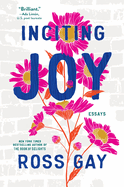
| Publisher: | Algonquin | |
| Genre: | Biography & Autobiography, Personal Memoirs, Literary Collections, Cultural, Ethnic & Regional, African American & Black, Essays | |
| ISBN: | 9781643753041 | |
| Pub Date: | October 2022 | |
| Price: | $27 |
| Nonfiction |
by Ross Gay
Poet Ross Gay has a single-minded focus: making the world a better place. Inciting Joy: Essays, a collection of 14 energetic reflections, investigates how to "make joy more available to us" and "how joy makes us act and feel," and displays Gay's gift for intensely observing the world around him, including his involvement in the creation of a community orchard in his hometown of Bloomington, Ind., and his appreciation for the standup comedy of Richard Pryor. But the volume isn't a catalog of unalloyed pleasure. In "Through My Tears I Saw (Death: The Second Incitement)," Gay recounts the death of his father at age 58, a man with whom he had a difficult relationship, and his penultimate piece, "Grief Suite (Falling Apart: The Thirteenth Incitement)," surveys a wide range of male emotions and his own struggle with mental health issues.
Gay (The Book of Delights) concludes Inciting Joy with an essay on gratitude, describing Aretha Franklin's rendition of "Amazing Grace." One can almost hear the ecstatic voices of a gospel choir in Gay's admonition that "we belong not to an institution or a party or a state or a market, but to each other. Needfully so." It's a fitting ending to a consistently uplifting book. --Harvey Freedenberg, freelance reviewer
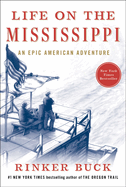
| Publisher: | Avid Reader Press | |
| Genre: | Travel, Adventure, United States, General, Essays & Travelogues, History, Special Interest, Maritime History & Piracy, Expeditions & Discoveries | |
| ISBN: | 9781501106378 | |
| Pub Date: | August 2022 | |
| Price: | $32.50 |
| Nonfiction |
by Rinker Buck
For Rinker Buck, conquering the 2,000 miles of river between Pittsburgh and New Orleans on a hand-built wooden flatboat was more than an attempt to sate his lifelong appetite for adventure--it was a way of exploring an overlooked but crucial chapter of American history. In Life on the Mississippi, his illuminating and entertaining account of his days aboard Patience, Buck (The Oregon Trail) describes how his fascination with the flatboat deepened and transformed his understanding of the country and its past.
The reasons for the craft's marginalization in history, Buck suggests, are twofold. First, the lofty outlook of many traditional historians does little to reflect the "hardscrabble, edgy lives of most 19th-century Americans," of which the flatboat was a product. Secondly, few traces of the flatboat era have survived in the physical culture of the U.S. Most flatboats, upon reaching their destination, were stripped and sold as salvage, helping build the young nation's infrastructure and the boatman's profits.
Buck's ability to deftly balance the intimate and the epic, along with his pervading charm and literary panache, make Life on the Mississippi a delightful and engrossing read. --Theo Henderson, bookseller at Ravenna Third Place Books, Seattle, Wash.
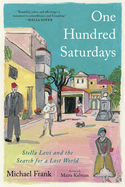
| Publisher: | Avid Reader Press | |
| Genre: | Biography & Autobiography, Women, 20th Century - Holocaust, History, Jewish, Modern | |
| ISBN: | 9781982167226 | |
| Pub Date: | September 2022 | |
| Price: | $28 |
| Nonfiction |
by Michael Frank, illust. by Maira Kalman
Michael Frank's One Hundred Saturdays is the emotionally stunning biography of Stella Levi, one of the last Jewish survivors of the Greek island of Rhodes. Levi's beloved Juderia, Rhodes's Jewish quarter, spanned about "ten, twelve square blocks in all," cobblestoned streets and courtyards smelling of "jasmine and rosemary, lavender and roses and rue."
At one of their first meetings--eventually becoming 100 Saturdays over the course of six years, Frank asks Levi to share her life story. "Possibly," she says. "But not the camps.... I don't want to be that person." Levi recalls her youth: weddings, Yom Kippur, Passover, the frisson of first love. The image of her packing a suitcase at age 14 to be ready for university echoes throughout the book. Levi eventually describes her deportation to Auschwitz, among the 1,650 Jews collected from Rhodes, and her survival of five different camps.
Maira Kalman's gouache paintings in burgundies, yellows, blues and greens depict moments both small (wearing an outfit her sister sent from "Ah-merica") and life-altering ("The window [that] was the last thing Stella saw that connected her to the Juderia").
This biography, winner of the Jewish Book Council’s Natan Notable Book Award, pins to the page a lost world preserved in the carefully captured memories here. --Samantha Zaboski, freelance editor and reviewer
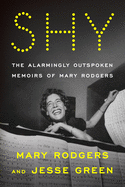
| Publisher: | Farrar, Straus and Giroux | |
| Genre: | Biography & Autobiography, Theater, Music, Personal Memoirs, Entertainment & Performing Arts, Broadway & Musicals, Performing Arts | |
| ISBN: | 9780374298623 | |
| Pub Date: | August 2022 | |
| Price: | $35 |
| Nonfiction |
by Mary Rodgers, Jesse Green
The composer (Once Upon a Mattress) and children's book author (Freaky Friday) Mary Rodgers (1931-2014) had this to say of her decision to work on a syrupy television musical in the early 1960s: "In my defense, that was during the period when I would basically do anything. And that period has been my whole life." That whole life is on dazzling display in Shy: The Alarmingly Outspoken Memoirs of Mary Rodgers, in which her more dispiriting undertakings are just as enthusiastically recollected as her sporadic but stratospheric triumphs.
The daughter of musical theater titan Richard Rodgers and decorator and inventor Dorothy, Mary Rodgers turns her clashes with her human-briar-patch-like mother into a sort of percussion that rumbles beneath Shy's more melodic memories. Shy is a treasure chest of goodies for fans of the New York performing arts world at mid-century and just beyond. Readers besotted with Old Broadway would probably inhale Rodgers's memoir no matter its quality, but Shy, written with theater critic Jesse Green (O Beautiful; The Velveteen Father), has the added bonus of being note-perfect. --Nell Beram, author and freelance writer